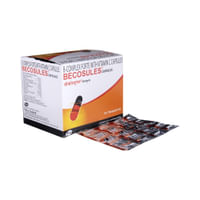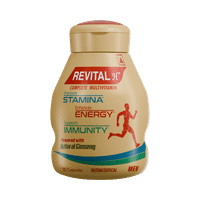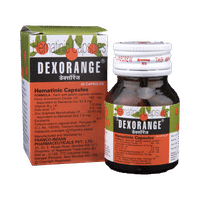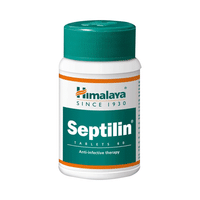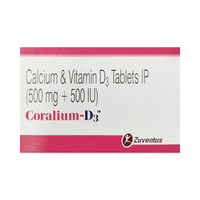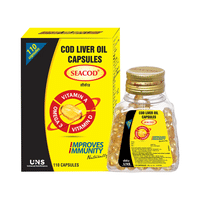food interaction for Remfolet Plus
alcohol interaction for Remfolet Plus
pregnancy interaction for Remfolet Plus
lactation interaction for Remfolet Plus
food
alcohol
pregnancy
lactation
Remfolet Plus 10mg/7.5mg Tablet may be taken with or without food, but it is better to take it at a fixed time.
None
None
CAUTION
Caution is advised when consuming alcohol with Remfolet Plus 10mg/7.5mg Tablet. Please consult your doctor.
CAUTION
Remfolet Plus 10mg/7.5mg Tablet may be unsafe to use during pregnancy. Although there are limited studies in humans, animal studies have shown harmful effects on the developing baby. Your doctor will weigh the benefits and any potential risks before prescribing it to you. Please consult your doctor.
CONSULT YOUR DOCTOR
Remfolet Plus 10mg/7.5mg Tablet is probably unsafe to use during breastfeeding. Limited human data suggests that the drug may pass into the breastmilk and harm the baby.
CONSULT YOUR DOCTOR
SALT INFORMATION FOR Remfolet Plus
Escitalopram Oxalate(10mg)
Uses
Escitalopram Oxalate is used in the treatment of depression, anxiety disorder and Panic disorder.
How it works
Escitalopram Oxalate is a selective serotonin reuptake inhibitor (SSRI) antidepressant. It works by increasing the levels of serotonin, a chemical messenger in the brain. This improves mood and physical symptoms of depression and also relieves symptoms of anxiety, panic attacks and obsessive-compulsive disorders.
Common side effects
Decreased libido, Fatigue, Insomnia (difficulty in sleeping), Nausea, Ejaculation disorder, Abnormal dreams, Anxiety, Diarrhea, Headache, Weight gain, Inflammation of the nose, Gastrointestinal disturbance, Visual disturbance, Anaphylactic reaction, Aggression, Depersonalisation (feelings of being outside the body), Hallucination, Serotonin syndrome, Slow heart rate
L-Methyl Folate(7.5mg)
Uses
L-Methyl Folate is used in the treatment of nutritional deficiencies.
How it works
L-Methyl Folate provides essential nutrients.
Common side effects
Gastrointestinal discomfort, Bitter taste, Confusion, Taste change, Excitement, Hyperactivity, Impaired concentration, Impaired judgment, Irritation, Loss of appetite, Sleep disorder, Flatulence, Nausea
SUBSTITUTES FOR Remfolet Plus
3 Substitutes
3 Substitutes
Sorted By
 Rs. 95save 40% more per Tablet
Rs. 95save 40% more per Tablet Rs. 95save 40% more per Tablet
Rs. 95save 40% more per Tablet Rs. 98.75save 38% more per Tablet
Rs. 98.75save 38% more per Tablet
Expert advice FOR Remfolet Plus
- Take it in the morning since it can keep you awake if taken late at night.
- Talk to your doctor if you notice sudden mood changes or develop suicidal thoughts.
- The addiction or dependence potential of Escitalopram Oxalate is very less.
- It has a lower chance of causing sexual dysfunction than other similar medications.
- Do not stop taking the medication suddenly without talking to your doctor first.
- Some people can develop dizziness or drowsiness after taking this medicine. Do not drive or do anything that requires mental focus until you know how this medicine affects you
Frequently asked questions FOR Remfolet Plus
Escitalopram Oxalate
Q. How long does it take for Escitalopram Oxalate to work?
Usually, it will take about 2-4 weeks before you start feeling better, however, full benefits may take a little longer. Therefore, do not stop taking Escitalopram Oxalate without consulting your doctor. Talk to your doctor if taking the medicine does not make you feel better or you feel worse even after taking the medicine.
Q. What are the most common side effects of Escitalopram Oxalate?
The most common side effects of Escitalopram Oxalate are headache and nausea. Other common side effects include blocked or runny nose, decreased or increased appetite, anxiety, restlessness, and abnormal dreams. You may also experience sleepiness or difficulty falling asleep, dizziness, yawning, tremors, diarrhea, or constipation. Other side effects of Escitalopram Oxalate may be vomiting, dry mouth, increased sweating, fatigue, fever, increase in weight, and pain in muscles and joints. Using this medicine may even cause delayed ejaculation, problems with erection, decreased sexual drive and women may experience difficulty in achieving orgasm.
Q. What is Escitalopram Oxalate used for?
Escitalopram Oxalate is used to treat depression and anxiety disorders such as social phobia, anxiety disorder, panic attacks, and obsessive-compulsive disorder.
L-Methyl Folate
Q. What is L-Methyl Folate? What is it used for?
L-Methyl Folate contains folate which is also known as folic acid (a form of Vitamin B). This medicine is used to treat or prevent deficiency of folate in the body. Folate plays an essential role in the production of red blood cells, and its deficiency can lead to anemia.
Q. Who should not take L-Methyl Folate?
You should not use this medication if you have ever had an allergic reaction to L-Methyl Folate or any of its ingredients. Before you take this medication, tell your doctor if you have a vitamin B12 deficiency, pernicious anemia or a history of bipolar disorder (manic depression). Also, inform your doctor if you are pregnant or breastfeeding. Let your doctor know about all the other medicines you are taking because they may affect, or be affected by, this medicine.
Q. Is L-Methyl Folate effective?
L-Methyl Folate is effective if used in the dose and duration advised by your doctor. Do not stop taking it even if you see improvement in your condition. If you stop using L-Methyl Folate too early, the symptoms may return or worsen.














